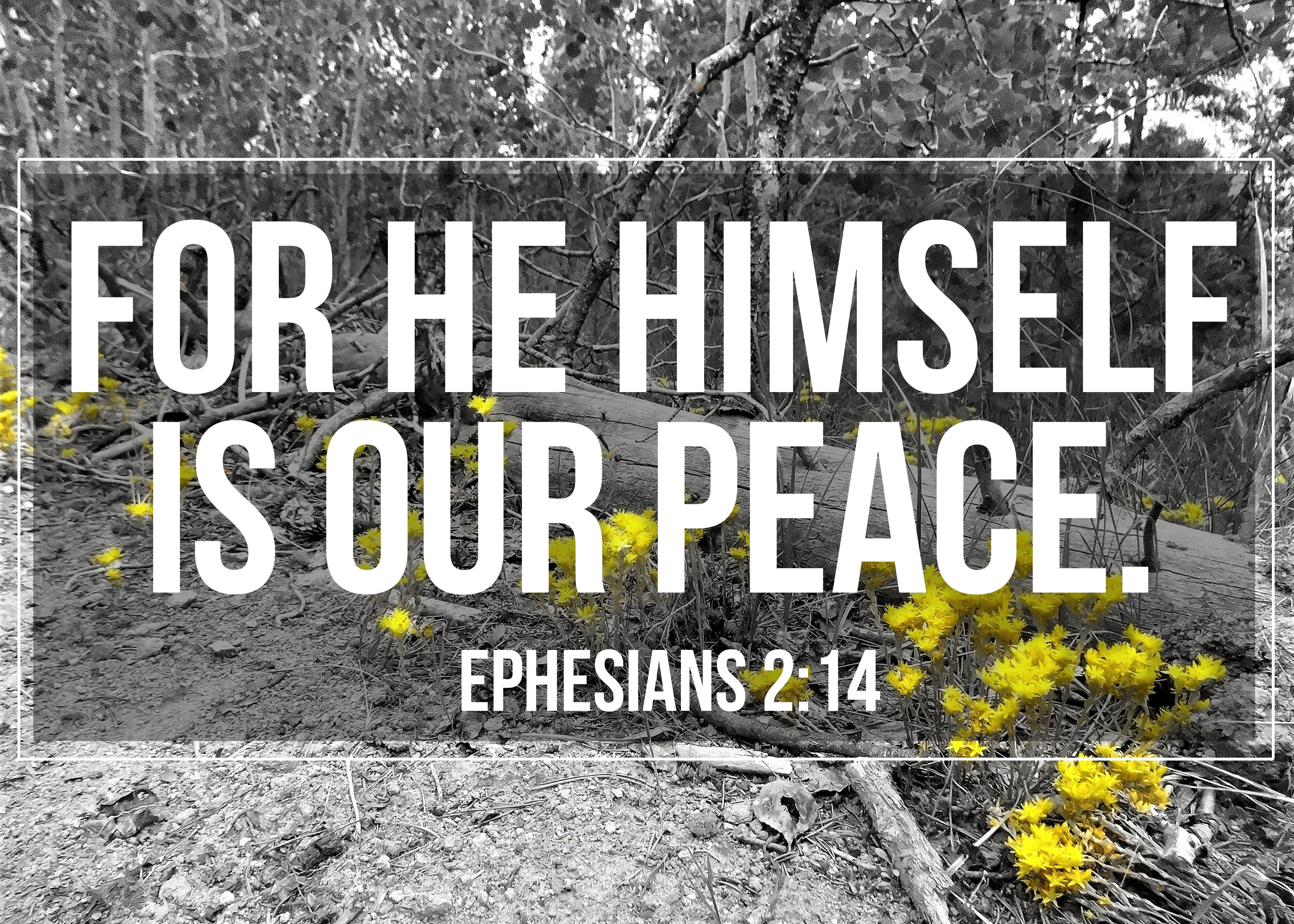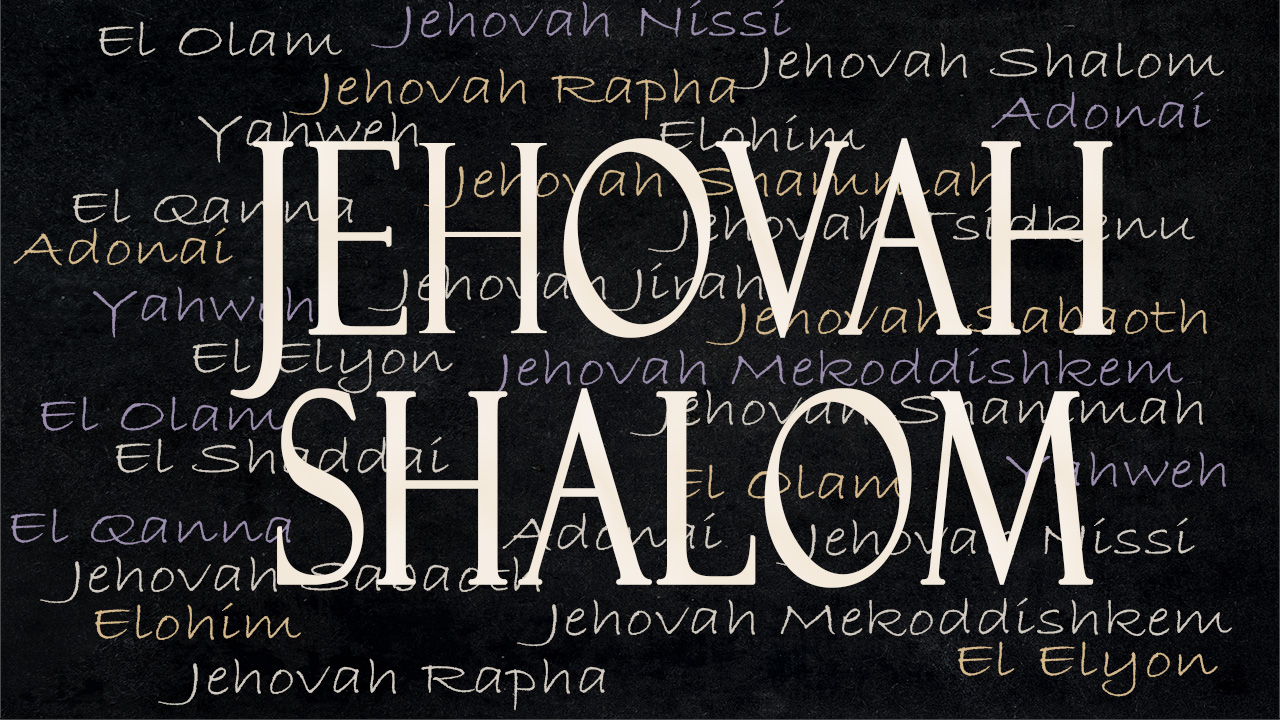Peace. What is it? How do we find it? How is it connected to joy? On Sunday, Pastor John led us into the last chapter of Philippians, and he focused on the parts of the passage that speak to us about peace.
“My dear and precious friends, whom I deeply love, you have truly become my glorious joy and crown of reward. Now arise in the fullness of your union with our Lord. . . Be cheerful with joyous celebration in every season of life. Let joy overflow, for you are united with the Anointed One! Let gentleness be seen in every relationship, for our Lord is ever near. Don’t be pulled in different directions or worried about a thing. Be saturated in prayer throughout each day, offering your faith-filled requests before God with overflowing gratitude. Tell him every detail of your life, then God’s wonderful peace that transcends human understanding, will make the answers known to you through Jesus Christ. So keep your thoughts continually fixed on all that is authentic and real, honorable and admirable, beautiful and respectful, pure and holy, merciful and kind. And fasten your thoughts on every glorious work of God, praising him always. Follow the example of all that we have imparted to you and the God of peace will be with you in all things. . . I know what it means to lack, and I know what it means to experience overwhelming abundance. For I’m trained in the secret of overcoming all things, whether in fullness or in hunger. And I find that the strength of Christ’s explosive power infuses me to conquer every difficulty. (4:1, 4-9, 12-13, TPT)
Both occurrences of “peace” in the above passage are translated from the Greek eirēnē. Eirēnē is the Greek equivalent of the Hebrew word Shalom. Shalom is one of our favorite words at Enter In, which you already know if you’ve read this blog for any length of time. It means wholeness, completeness, it carries within it a sense of equity, and the restoration of all things to their original design; it also means to destroy the authority of what is causing chaos. When Paul tells us that peace will guard us, and that the God of peace will be with us, his words are pregnant with meaning–all of the meaning of the word Shalom that he was deeply acquainted with as a dedicated scholar of the Hebrew Scriptures. Peace in this context goes far beyond the white-dove-on- a-Christmas-card kind of peace we’re familiar with. It’s everything Shalom means… and more.
Let’s look at more words from Paul, from his letter to the Ephesians:
For He Himself is our peace and our bond of unity… (AMP)
Our reconciling “Peace” is Jesus! (TPT)
For Christ is our living peace. (JB Phillips)
(Ephesians 2:14, emphases mine)
Jesus IS. OUR. PEACE. I wrote about this verse recently, about how it takes my breath away every time I consider it. Peace is not conditional or circumstantial. It is not a fleeting emotion, or something we have to strive or grasp for. Peace is… Jesus. I’ll never, ever get over that. Again, the word here is eirēnē. Jesus is our eirēnē. Our Shalom. What does it mean for Jesus to be our Shalom?
“The people who walked in darkness have seen a great light. For those who lived in a land of deep shadows—
light! Sunbursts of light! You repopulated the nation, you expanded its joy. Oh, they’re so glad in your presence! Festival joy! The joy of a great celebration, sharing rich gifts and warm greetings. The abuse of oppressors and cruelty of tyrants— all their whips and cudgels and curses—Is gone, done away with, a deliverance as surprising and sudden as Gideon’s old victory over Midian. The boots of all those invading troops, along with their shirts soaked with innocent blood, will be piled in a heap and burned, a fire that will burn for days! For a child has been born—for us! The gift of a son—for us! He’ll take over the running of the world. His names will be: Amazing Counselor, Strong God, Eternal Father, Prince of Wholeness. His ruling authority will grow, and there’ll be no limits to the wholeness he brings. He’ll rule from the historic David throne over that promised kingdom. He’ll put that kingdom on a firm footing and keep it going with fair dealing and right living, beginning now and lasting always.” (From Isaiah 9:2-7, MSG)
I love The Message paraphrase of these verses. What Eugene Peterson translated “Prince of Wholeness,” we more frequently see translated “Prince of Peace,” especially at Christmastime. Both are an accurate translation–the original Hebrew word here is–you guessed it–Shalom. The incarnation of Jesus was the embodiment of the hope the prophets of Israel said would come. The Shalom they longed for, the restoration they believed for–when Jesus was born, that Shalom, that eirēnē, became flesh that would dwell among us, that would tear down dividing walls and reconcile all things. And we would not only have access to this peace–it would live within us and be produced by us, a fruit of the indwelling Spirit of Jesus…
“. . . the fruit of the Spirit is love, joy, peace (eirēnē), forbearance, kindness, goodness, faithfulness, gentleness and self-control.” (Galatians 5:22-23, NIV)
We can have peace this Christmas, this day, and every day–even in 2020, even when divisions widen and a pandemic plagues the earth, even when so much feels broken beyond repair–because peace is not a feeling. Peace is a person. A perfect person. The God-man himself. Peace is Jesus. He is Emmanuel, God with us and God in us. He himself is our peace…
This morning’s reading in one of my advent devotionals connected beautifully the concepts of peace and joy. It feels like a great way to wrap up my portion:
“The joy spoken of and so prevalent in the life and teachings of Jesus is something perennial, an immutable, unstealable, internal peace, that, like a friend, simply stays regardless of what’s happening. It allows us to feel secure in the shaking, to laugh when everything hits the fan, and to experience abundance even when we should be lacking. Today, don’t feel any pressure to be happy, but do feel invited into great joy.” (Low, Pavlovitz)
Do feel invited into great joy… because we have a friend, a peace, who remains with us regardless–forever. Grace, joy, and Shalom to you, dear friends…
–Laura
I love what Laura wrote so much, I am tempted to not add anything; however, a few thoughts are floating in my head, so I’ll continue.
After reading Laura’s portion, I am stirred deep within by this thought: What if we could truly grasp the concept of shalom, of eirēnē–what if we could really understand that Jesus is the embodiment of shalom and we are the embodiment of Jesus, how different would things be?
Like Laura, I love the Eugene Peterson paraphrase of Isaiah 9:6 and his choice to translate the familiar title “Prince of Peace” as “Prince of Wholeness”. The word wholeness causes me to think of John 3:17 which says For God did not send his Son into the world to condemn the world, but to save the world through him. “Save” is the Greek word “sozo”. It is used over and over in the New Testament and it means heal; made whole. So, God did not send Jesus into the world to condemn the world, but to heal the world, to make it whole through him. He is the Prince of Wholeness, and we are invited to participate with him in our personal healing and wholeness and in his ministry of healing and wholeness in the world. Saving the world in Jesus, healing the world in Jesus, bringing wholeness to the world through Jesus, is our mission as his church, his ecclesia, his called out ones.
Revisiting Philippians 4, this week’s passage, Paul addresses a conflict between two women in the Philippian church. Paul pleads with them to “be of the same mind in the Lord” (4:2) Unity is important to Paul; he knows Jesus taught that our love for one another shows the world who Jesus is and what his followers are like (Jn 13:35). Encouragement toward unity under our one Lord (Gal 3:28) appears in many of Paul’s letters. In his letter to the Romans he writes: If it is possible, as far as it depends on you, live at peace with everyone. (Rom 12:18) Sit with that for a moment.
Think about the phrase as far as it depends on you… Unfortunately, in this life there are some conflicts that won’t be resolved, but have you done your part? Each of us is encouraged to do our part in seeking healing and wholeness. I’ll say it again, we are participants in the ministry and mission of the Prince of Peace–the Prince of Wholeness. Are we seeking peace? “Peace” in Romans 12:18 is the verb form of eirēnē, and includes the definition make peace, cultivate peace; harmony. Jesus’ peace, healing and wholeness are not static. Jesus’ peace is developed and worked–cultivated– like soil before planting. It leads to harmony–not sameness, but wholeness in our differences, like a chord in music. Are we doing what we can to cultivate peace? Are we like-minded in Jesus? Do we have the same mind in us that was in Jesus? (Ph 2:5) Are we renewing our minds in Christ by changing the way we think or are we thinking like the world? (Rom 12:2) Are we cultivating peace in our inner lives? Are we cultivating peace in the world?
Paul, right after addressing the conflict, seems to switch gears and says “Rejoice in the Lord always. I will say it again: rejoice!” Did you know that rejoice (chairo) doesn’t only mean “be glad”, it also means “be well; thrive”? I didn’t know that until just now when I looked it up. Could that be the definition Paul has in mind? Could “be of the same mind in the Lord” and “Be well; thrive in the Lord always…” be connected? I can certainly see the connection, especially paired the words that follow: Let your gentleness be evident to all…
Gentleness is a fruit of the Spirit and evidence that we are well and thriving in the Lord. Even when conflict arises, can we be well, thrive in the Lord, speak gently, be kind, seek harmony, seek peace? We all know that it’s not easy, but Paul reminds us in that same verse, the Lord is near. We are not left alone to figure this out. Jesus is right here, and he will empower us to bear the fruit of the Spirit when we abide in him. How beautiful is that? The results don’t belong to us, but have we done what we can do?
The rest of this week’s passage addresses anxiety, circumstances, contentment, partnership in ministry, taking care of one another’s needs, and confidence that the Lord will supply all we need in him, but I’m not going to dive into those things. I want us to sit with what Laura focused on-–Jesus is our peace, and contemplate where we are with that. Are we well in Jesus? Are we thriving in Jesus? If we are, we will experience his shalom, his healing work of wholeness in our lives, and we will be harmonious instruments of his peace to those around us.
Lord, make me an instrument of your peace:
where there is hatred, let me sow love;
where there is injury, pardon;
where there is doubt, faith;
where there is despair, hope;
where there is darkness, light;
where there is sadness, joy.
O divine Master, grant that I may not so much seek
to be consoled as to console,
to be understood as to understand,
to be loved as to love.
For it is in giving that we receive,
it is in pardoning that we are pardoned,
and it is in dying that we are born to eternal life.
Amen.
Prayer of Peace: St. Francis.
As we celebrate Christmas in a few short days, may we lean into our gentle, approachable, loving, humble Prince of Peace. May we thrive in him, be healed in him, be made whole in him, become like him, and cultivate God’s Kingdom of Peace on the earth.
Jesus is our peace.
–Luanne








